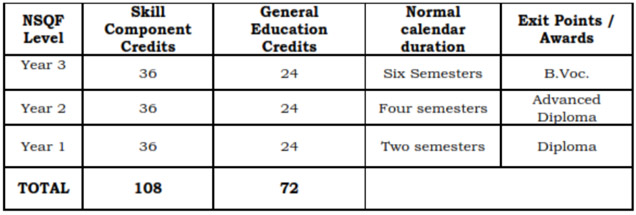
AIDED
ARTS
Jr. College
English
French
Gujarati
Hindi
History
Marathi
Philosophy
Political Science
Psychology
Sindhi
Sr. College
COMMERCE
SCIENCE
Jr. College
Sr. College
UNAIDED
B.Voc
B.Voc in Software Development & Travel & Tourism
B.Voc in Software DevelopmentB.Voc in Software Development (Syllabus)
B.Voc in Software Development The field of software development now covers a number of fields involving many complicated operations serving a large number of industries – in fact it now covers all kinds of human activities we could think of. Many offices are trying to make their operation paperless and software development is playing a leading role to achieve this target. Therefore, in the present world, the growth of any company has become very much dependant with software development efforts. It has been a long felt necessity to align higher education with the emerging needs of the economy so as to ensure that the graduates of higher education system have adequate knowledge and skills for employment and entrepreneurship. The higher education system has to incorporate the requirements of various industries in its curriculum, in an innovative and flexible manner while developing a holistic and well groomed graduate. Objectives
Levels of Awards The certification levels will lead to Diploma/Advanced Diploma/B. Voc. Degree in one or more vocational areas and will be offered under the aegis of the University. This is out-lined in Table I.
Eligibility for admission in B.Voc. The eligibility condition for admission to B.Voc. programme shall be 10+2 or equivalent, in any stream. Curriculum -> The curriculum in each of the years of the programme would be a suitable mix of general education and skill development components. Curriculum details should be worked before introduction of the courses. > Skill Development Components: (i) The focus of skill development components shall be to equip students with appropriate knowledge, practice and attitude, so as to become work ready. The skill development components should be relevant to the industries as per their requirements. (ii) The curriculum should necessarily embed within itself, National Occupational Standards (NOSs) of specific job roles within the industry sector(s). This would enable the students to meet the learning outcomes specified in the NOSs. (iii) The overall design of the skill development component along with the job roles selected should be such that it leads to a comprehensive specialization in one or two domains. (iv) In case NOS is not available for a specific area / job role, the university/college should get the curriculum for this developed in consultation with industry experts. (v) The curriculum should also focus on work-readiness skills in each of the three years. (vi) Adequate attention needs to be given in curriculum design to practical work, on the job training, development of student portfolios and project work. >General Education Component:
The suggested credits for each of the years are as follows:
Fees: 6600
|
||||||||||||||||||||||||||||||||||||||||||||||||||||||||||||||||||||||||||||||||||||||||||||||||||||||||||||||||||||||||||||||||||||||||||||||||||||||||||||||||||||||||||||||||||||||||||||||||||||||||||||||||||||||||||||||||||||||||||||||||||||||||||||||||||||||||||||||||||||||||||||||||||||||||||||||||||||||
B.Voc in Travel & Tourism
Bachelors in Vocation Education Jai Hind College launches UGC approved , unique program titled , Bachelor of Vocation Course under Mumbai University . The primary objective of this Course is add to the employability of students in crucial sectors of the economy. The Course is a unique blend of theoretical component as well as skill building component with regards to a specific sector which gives an opportunity to students an acquire skills at undergraduate level itself in order to leverage their career prospects. Under the PMKVY, the government is committed to promoting more job opportunities in each of the crucial sectors of the economy. In accordance with the policy guidelines pertaining to human resource and skill requirements for the Tourism and Hospitality sector, the skill sector council will play a significant role in the certification of skills of the prospective entrants to the industry at various levels. In order to achieve this goal, UGC has launched a scheme on skills development based higher education, leading to Bachelor of Vocation with multiple exits such as Diploma/Advanced Diploma under the NSQF (National Skills Qualification Framework). The B Voc. Program is focused on providing undergraduate education a new thrust by incorporating and blending skill building which will incorporate specific job roles in addition to the general education aspects undertaken in any undergraduate Course. Jai Hind will be launching two such Bachelor in Vocation Courses 1.Software Development 2.Travel and Tourism
Multiple Exit Options
Key aspects of the Course The Course has a pattern of Credits which is in adherence to the UGC Guidelines and the Mumbai University pattern of Credit Based Grading System. Total credit for each Course is 30.The emphasis on skill based component is that it focuses on developing the potential and in creating the competency in the student to be able to handle a specific job. Highlights of the Course
Papers for the Course Skill assessment mandatory The skill certification will be done by the experts who are affiliated to the skill sector council .This will be done at the College by experts from outside, Tie ups At present we have tie up with I –Britons and Bon Voyage Eligibility All students who have complete 10+2 are qualified to apply Evaluation Examination pattern will be same as the rest of the course under the Mumbai University. External Paper -75 Internals -25 Fees |
||||||||||||||||||||||||||||||||||||||||||||||||||||||||||||||||||||||||||||||||||||||||||||||||||||||||||||||||||||||||||||||||||||||||||||||||||||||||||||||||||||||||||||||||||||||||||||||||||||||||||||||||||||||||||||||||||||||||||||||||||||||||||||||||||||||||||||||||||||||||||||||||||||||||||||||||||||||



